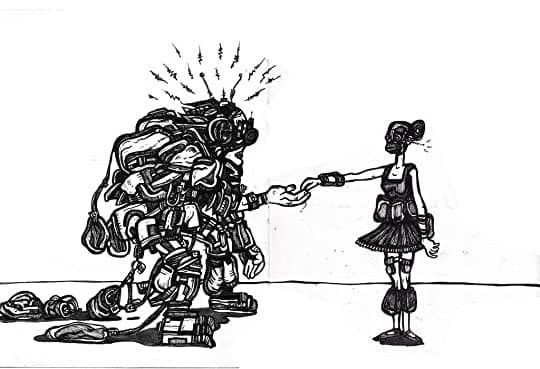Controversial Tweet Alleges Shifting US Values and Youth Identity Crisis

A recent social media post by user Harry Bergeron has ignited discussion by presenting a provocative narrative on American historical interpretation, political shifts, and generational identity. The tweet outlines a progression from the post-World War II era to contemporary issues, asserting that after the defeat of Nazism, the "left takes over, makes USA anti-White," leading to "white zoomers" being told they are "evil" and subsequently claiming to "like Hitler." The post concludes by stating that "conservatives that failed them overreact, reaffirm top value is being anti-Nazi."
The assertion of the "USA anti-White" sentiment reflects a contentious claim often encountered in contemporary discourse surrounding identity politics and critical race theory. While some interpret discussions on systemic racism and historical injustices as targeting white identity, reputable analyses typically frame these as efforts to address historical power imbalances and promote equity, rather than being inherently "anti-white." These claims are frequently associated with specific political narratives and can be a point of significant societal division.
The tweet's alarming claim regarding "white zoomers" expressing admiration for Hitler touches upon serious concerns about youth radicalization and the spread of extremist ideologies online. While studies indicate a vulnerability among young people to misinformation and extremist content, there is no widespread, documented trend from reputable sources suggesting that "white zoomers" are broadly endorsing Hitler due to being labeled "evil." Instead, reports often highlight the need for digital literacy and critical thinking skills to counter online radicalization.
The final point regarding conservatives reaffirming anti-Nazism, despite allegedly "failing" youth, underscores a complex internal critique within the tweet's narrative. Mainstream conservative political thought in the United States has historically and consistently condemned Nazism and white supremacy, aligning with the nation's foundational opposition to such ideologies. The tweet suggests a perceived failure in addressing youth identity concerns, leading to a reactive reaffirmation of established anti-Nazi values.
Bergeron's tweet, while highly controversial, serves as a snapshot of certain narratives circulating within social media, reflecting ongoing cultural anxieties and debates over historical memory, racial identity, and the political landscape. It highlights the deeply polarized interpretations of societal shifts and their alleged impact on younger generations.